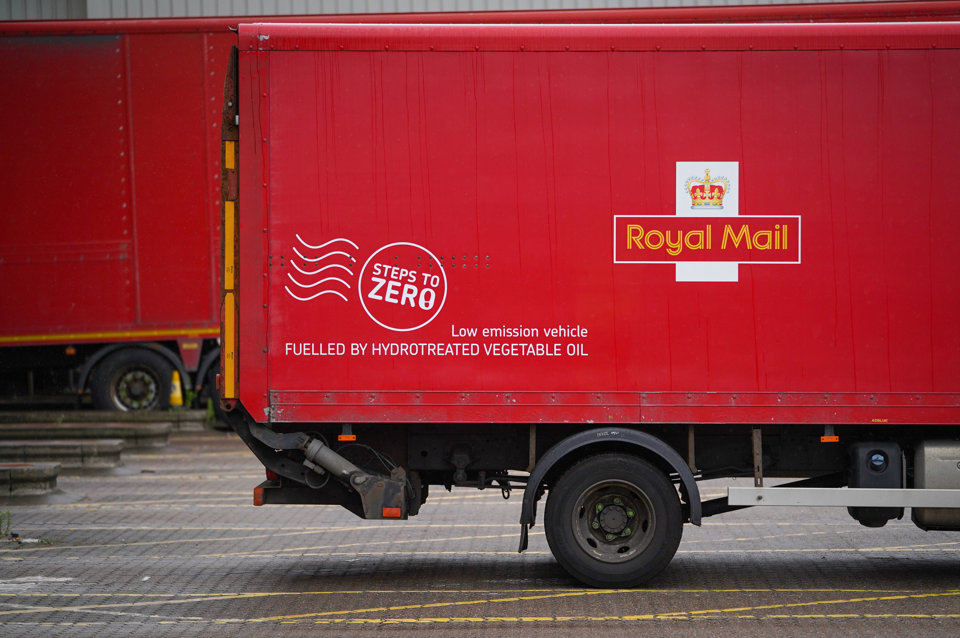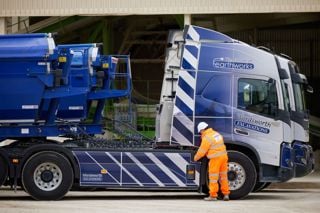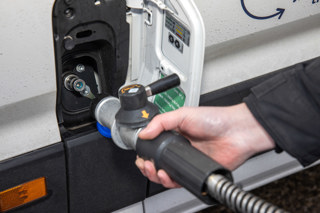Royal Mail has used more than 10 million litres of hydrotreated vegetable oil (HVO) to fuel its heavy goods vehicle (HGV) fleet, saving the equivalent of 30,000 tonnes of carbon dioxide (CO2).
The company has hit the milestone after first introducing the fuel in June 2023 as part of its efforts to reduce carbon emissions from its vehicle fleet.
HVO is a renewable alternative to diesel that reduces up to 90% of direct greenhouse gas emissions compared to diesel.
It is now being used at six of Royal Mail’s largest sites, including both parcel hubs in Daventry and Warrington and key sites in the East Midlands, Manchester, Sheffield and Warrington.
The company aims to deploy 27 million litres of HVO annually across its network by this time next year, saving a further 44,000 tonnes of carbon dioxide.
Royal Mail’s ‘Steps to Zero’ environment strategy set a goal of achieving net-zero by 2040, with a 50% reduction in Scope 1 and 2 emissions by 2030.
The company already claims to have the lowest emissions per parcel of any courier, at 218gCO2e, and aims to maintain this position in the long term.
Zebrina Hanly, Royal Mail’s head of environment, said: “It’s of critical importance to our customers that we do everything we can to reduce our emissions as soon as possible.
“Electric and hydrogen options for HGVs are still in their infancy, so whilst the technology and infrastructure are developing, our strategy is to keep emissions to a minimum by using HVO as a transitional fuel.”
Royal Mail has also introduced 5,000 electric vans as part of the decarbonisation of its fleet and was named Environmental Fleet of the Year at this year's Fleet News Awards.

























Login to comment
Comments
No comments have been made yet.